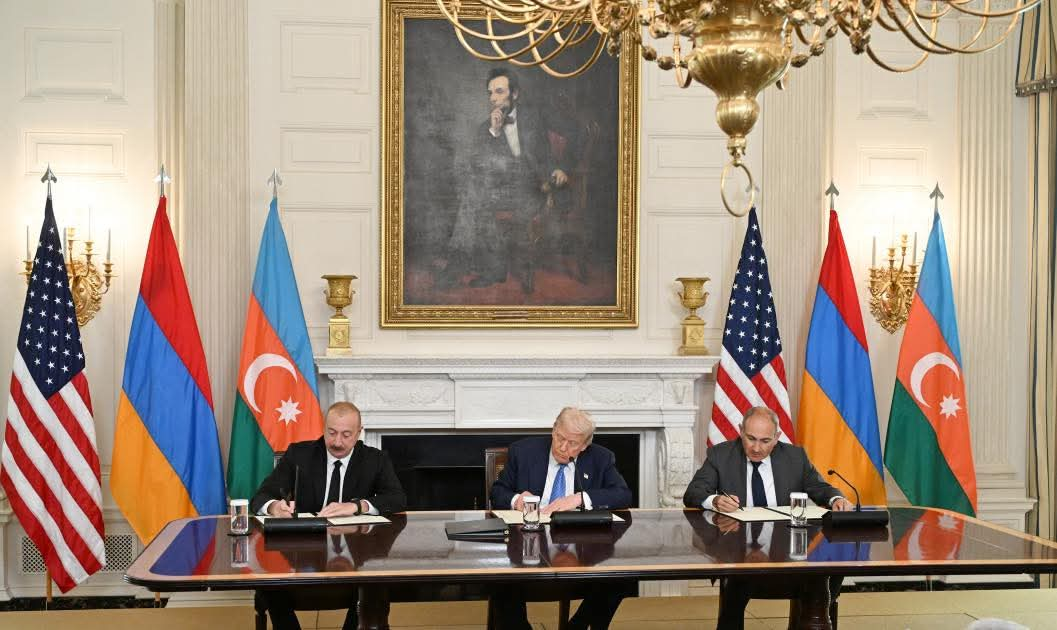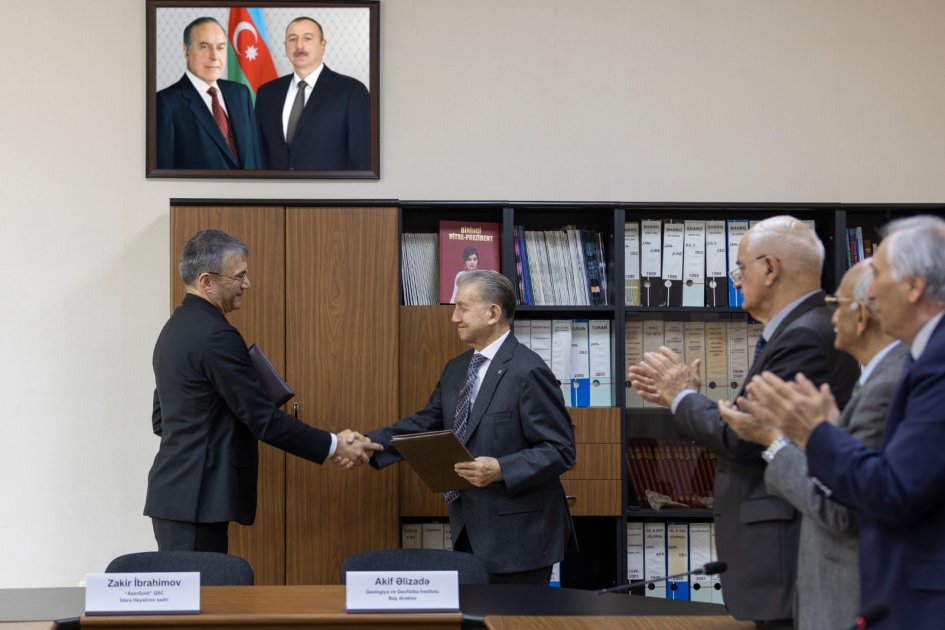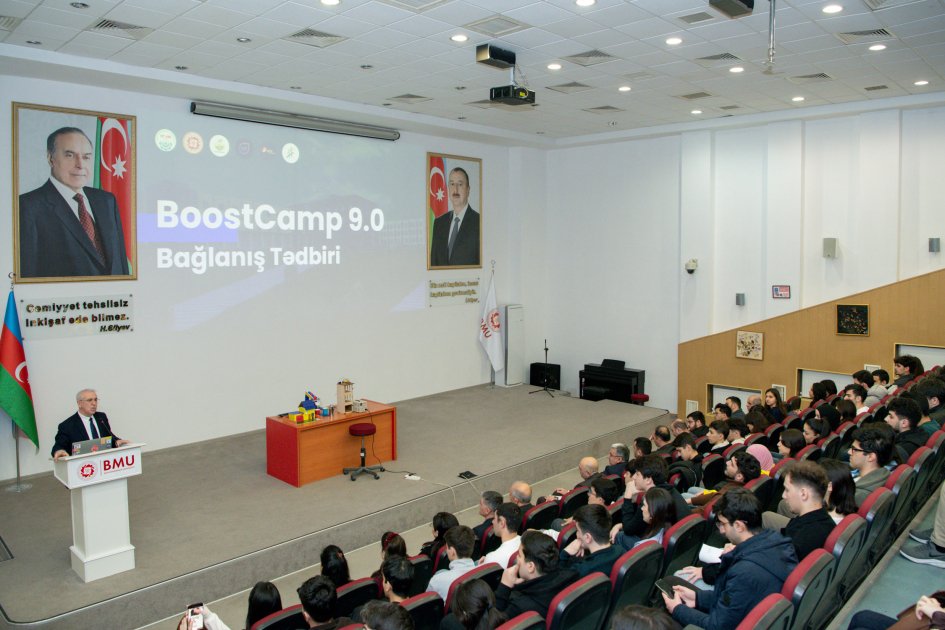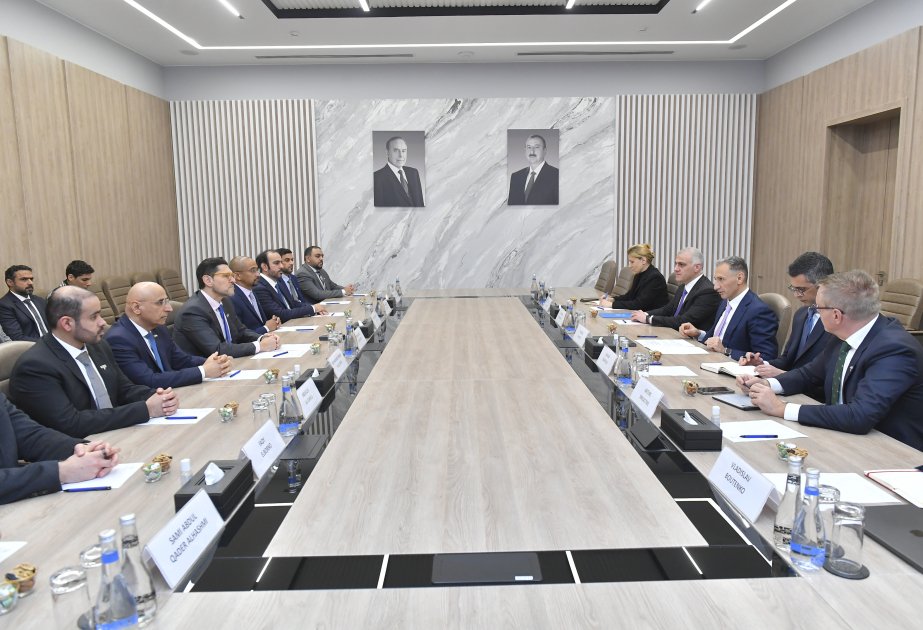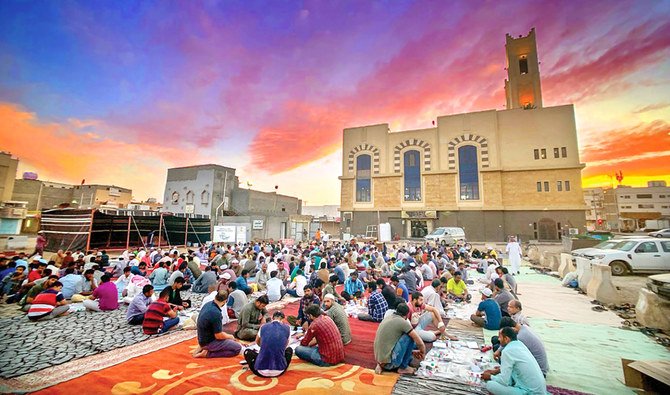After decades of tension between the two countries, Azerbaijani President Ilham Aliyev and Armenian Prime Minister Nikol Pashinyan will be received by Donald Trump, who also promises a new era of economic cooperation in the South Caucasus region.
Peace in the region?
The South Caucasus is one of the most important geostrategic regions, as noted by Iskandarov et al. (2019). Peace in this region is essential for Europe, Central Asia, and East Asia—a point that will be explained further below.
The year 2025 has been marked by a wave of peace initiatives in the South Caucasus. Pashinyan has been moving closer to both Türkiye and Azerbaijan. Armenia, Türkiye, and Azerbaijan are turning a new page, engaging not only to establish peace but also to boost trade. In fact, Pashinyan first visited Turkish President Recep Tayyip Erdoğan. On June 20, 2025, the Armenian Prime Minister met with Erdoğan to discuss efforts toward normalizing relations.
Despite criticism from the opposition, from a geostrategic perspective, Pashinyan’s pro-reconciliation stance appears to be bringing economic development to Armenia through the Zangezur Corridor. This corridor—one of the most debated issues since the Second Karabakh War—promises broad economic benefits for both Armenia and Azerbaijan, as will be discussed below.
He wrote on X ‘Had in-depth exchange with President @RTErdogan in Istanbul. Discussed the Armenia–Türkiye normalization process, regional developments, and the importance of sustained dialogue. Armenia remains committed to building peace and stability in our region’.
Pashinyan then met with Azerbaijani President Ilham Aliyev on July 10 in Abu Dhabi. According to France 25, Pashinyan seems determined to turn the page on conflict and work toward global peace. Armenia faces major economic challenges and significant isolation, largely due to its strained relations with neighboring countries.
End of Armenia’s isolation in the region?
“Pashinyan is very keen to break Armenia out of its isolation, and the best way to do that is a peace agreement with Azerbaijan and a normalization agreement with Türkiye,” Thomas de Waal, a senior fellow at Carnegie Europe, told AFP, as reported by France 24.
Karabakh is internationally recognized as part of Azerbaijan but was occupied for three decades by Armenian separatists after a war they won during the collapse of the USSR. This occupation led to the exodus of nearly all Azerbaijanis who had lived there. After President Ilham Aliyev’s victory, Baku fully regained control of the enclave during a lightning offensive in September 2023, according to Le Monde.
Seeking to move beyond the conflict, Baku and Yerevan agreed in March on the text of a peace treaty. This peace is crucial for the development of the Middle Corridor—a trade route connecting Southeast Asia and China to Europe via Kazakhstan, the Caspian Sea (using rail ferries), Azerbaijan, Georgia, and Türkiye. The international community has welcomed this step toward peace, led by both Pashinyan and Aliyev.
However, Baku has set certain conditions for signing the peace agreement. Aliyev demands that Armenia first amend its Constitution to officially renounce any territorial claims over Karabakh. As international law recognizes Karabakh as Azerbaijani territory, Azerbaijan insists on respect for its territorial integrity—meaning the inviolability of its borders.
Prime Minister Pashinyan has declared his willingness to comply in the interest of lasting peace, announcing plans to hold a constitutional referendum in 2027. Yet, the trauma of losing Karabakh continues to divide the country, according to RFI.
Aliyev and Pashinyan in Washington
Finally, on Friday, August 8, 2025, Prime Minister Pashinyan and President Aliyev joined at the White House for an official Peace Signing Ceremony, as Trump posted Thursday on his Truth Social platform.
The White House released the official schedule for the peace summit:
2:30 PM (10:30 PM Baku time) – President Trump welcomes Armenian Prime Minister Nikol Pashinyan.
2:35 PM – Bilateral meeting between Trump and Pashinyan in the Oval Office.
3:05 PM – Signing ceremony between Trump and Pashinyan.
3:10 PM – President Trump welcomes Azerbaijani President Ilham Aliyev.
3:15 PM – Bilateral meeting between Trump and Aliyev in the Oval Office.
3:45 PM – Signing ceremony between Trump and Aliyev.
4:15 PM (12:15 AM Baku time) – Trilateral signing ceremony with Trump, Aliyev, and Pashinyan.
The normalization of Armenian–Azerbaijani relations and the establishment of lasting peace could have a profoundly positive impact on both economies. Enhanced cooperation in transportation is likely to bring major benefits to Armenia and its neighbors. The opening of the transport corridor will:
Reopen borders with Azerbaijan and Türkiye
- Boost Armenia’s foreign trade
- Attract foreign direct investment at low interest rates
- Create new production zones and jobs
- Reduce military spending
- Azerbaijan can fully ensure Armenia’s imports in the following categories of goods:
Products of animal origin, not elsewhere specified or included
- Oil seeds and grains; other seeds and cereals
- Medicinal and technical plants; straw and fodder
- Vegetable materials for textile production; other unspecified vegetable products (code 14)
- Ores, slags, and ash (Source: CESD Press, 2025)
- In front of the White House, Hikmet Hajiyev, Assistant to the President of the Republic of Azerbaijan and Head of the Foreign Policy Affairs Department of the Presidential Administration, wrote on Twitter:
“President Ilham Aliyev won the war — now he wins the peace!!!”
“These two nations have been at war for many years, resulting in the deaths of thousands of people,” Trump wrote. “Many leaders have tried to end the war, with no success, until now—thanks to ‘TRUMP.’ My Administration has been engaged with both sides for quite some time,” he added, saying he was “very proud of these courageous leaders for doing the right thing” (The Guardian, 2025).
The Zangezur Corridor
The prospective agreement could end decades of conflict and reopen key transportation corridors—such as the Zangezur Corridor—across the South Caucasus, which have been closed since the early 1990s. This corridor would connect Azerbaijan to its exclave, Nakhchivan, separated from the mainland by a 32 km (20-mile) stretch of Armenian territory.
As Xavier Raufer writes in Revue Conflits, the Zangezur Corridor is “crucial at the Eurasian scale,” serving as a strategic link for energy routes between the Middle East and Europe. According to Novastan, the corridor, which crosses the Zangezur mountain range between Azerbaijan and Armenia, has recently gained international attention for its potential to reshape regional trade and connectivity.
The Zangezur Corridor will become the shortest land transport route between the Pacific and Atlantic oceans, as well as the intersection point of the North–South and East–West routes. It will significantly expand the operation of land transport routes connecting Europe and Asia (Gawliczek & Iskandarov, 2023).
The South Caucasus is often seen as a bridge between Europe and Asia. Thus, cooperation between Armenia and Azerbaijan represents a win-win outcome not only for both countries but also for Europe and Central Asia (Alizade, 2024).
Paulo Aguiar notes in Geopolitical Monitor that “by facilitating more efficient cargo movement, the corridor would strengthen Azerbaijan’s position as a transit hub,” contributing to its economic diversification beyond energy exports.
The corridor’s development would benefit sectors such as agriculture, manufacturing, and logistics.
Beyond Azerbaijan, the corridor is expected to have profound implications for regional connectivity. It is a cornerstone of the Middle Corridor initiative, a vital trade route linking China, Central Asia, and Europe. The broader South Caucasus–Caspian transport corridors are among the shortest, most secure, and reliable routes connecting East and West (Iskandarov et al., 2020, pp. 7–22).
The Zangezur Corridor—geopolitically and geo-economically significant for regional countries—will remove obstacles that have hindered regional cooperation for years, wrote Tarhan for Anadolu Ajansı (June 25, 2024). For example, today there is an obligation to use the Iranian corridor, which is why Iran has sought to block the Zangezur route.
The European Union and the United Kingdom view the Zangezur Corridor as a gateway to Central Asia—a resource-rich region with underdeveloped logistics infrastructure (Becker, 2024, July 23).
Eventually, the transit corridor is expected to include railways, oil and gas pipelines, and fiber-optic lines, enabling the movement of goods—and potentially people. The deal does not require U.S. funding for construction; instead, private corporations are expected to develop the infrastructure.
The corridor would allow people and goods to travel between Türkiye and Azerbaijan—and beyond to Central Asia—without passing through Iran or Russia. This peace is crucial for the development of the Middle Corridor.
The deal was reached following a visit earlier this year by Trump’s special envoy Steve Witkoff to Azerbaijan’s capital, Baku, and continued talks between the parties.
In reality, the United States is keen to strengthen its relations with Azerbaijan; the U.S. and Azerbaijan share a common partner—Israel. Moreover, yesterday, on August 7, the President of the Republic of Azerbaijan, Ilham Aliyev, met in Washington with the U.S. President’s special envoy, Steve Witkoff.
First, in the presence of President Ilham Aliyev and special envoy Steve Witkoff, a Memorandum of Cooperation was signed between SOCAR (the national oil company of Azerbaijan) and ExxonMobil, according to the official website of the Azerbaijani president.
Photo credit: Vaşinqtonda Azərbaycan Prezidenti İlham Əliyevin ABŞ Prezidentinin xüsusi elçisi Stiv Uitkoff ilə görüşü olub » Azərbaycan Prezidentinin Rəsmi internet səhifəsi
More articles: Azerbaijan and Turkmenistan: Driving the Middle Corridor Together – https://eureflect.com
BIBLIOGRAPHY
Aguiar, P. (2025, février 22). The Zangezur Corridor: A key trade link in the South Caucasus. Geopolitical Monitor. https://www.geopoliticalmonitor.com/the-zangezur-corridor-a-key-trade-link-in-the-south-caucasus/
Alizade, S. (2024, novembre 13). Le corridor de Zanguezour : un projet économique ambitieux aux obstacles politiques persistants. Novastan. https://novastan.org/fr/economie/corridor-zanguezour-projet-ambitieux-obstacles-politiques/
Becker, M. (2024, July 23). Why Iran opposes the Zangezur Corridor. Caspian Post. https://caspianpost.com/opinion/why-iran-opposes-the-zangezur-corridor
BFMTV. (2025, August 8). Donald Trump reçoit les dirigeants d’Azerbaïdjan et d’Arménie pour signer un accord de paix historique. https://www.bfmtv.com/international/amerique-nord/etats-unis/donald-trump/donald-trump-recoit-les-dirigeants-d-azerbaidjan-et-d-armenie-pour-signer-un-accord-de-paix-historique_AD-202508080369.html
FRANCE 24. (2025, June 20). Armenian PM Pashinyan meets Erdogan in Turkey on ‘historic’ visit. France 24. https://www.france24.com/en/middle-east/20250620-armenian-pm-pashinyan-arrives-in-turkey-for-historic-visit
Gawliczek, P., & Iskandarov, K. (2023). The Zangezur corridor as part of the global transport route (against the backdrop of power games in the South Caucasus region). Security and Defence Quarterly, 41(1), 36-53.
Iskandarov, Kh., Simons, G. and Gawliczek, P. (2019) ‘The South Caucasus: Stage for a “new great game” between NATO and Russia?’, Connections QJ, 18(3–4), pp. 7–34. doi: 10.11610/Connections.18.3-4.01.
Iskandarov, Kh., Mahammadali, V. and Gardashkhan, A. (2020) ‘Caspian region: Geopolitical arena. Clash of interests and energy security’, Civitas Et Lex, 26(2), pp. 7–22. doi: 10.31648/cetl.5138
Le Monde. (2025, August 8). L’Arménie et l’Azerbaïdjan attendus vendredi à Washington pour signer un accord de paix, annonce Donald Trump. Le Monde. https://www.lemonde.fr/international/article/2025/08/08/l-armenie-et-l-azerbaidjan-attendus-vendredi-a-washington-pour-signer-un-accord-de-paix-annonce-donald-trump_6627345_3210.html
oglu Aliyev, Z. B. (2024). Zangezur Corridor: a new landscape in the geopolitical conjuncture of the world. Universidad y Sociedad, 16(3), 33-38.
Press, C. E. S. D. (2025).Potential Economic Relations Between Azerbaijan and Armenia: An Assessment of Comparative Advantages.

Historian and environmental management expert on Central Asia and researcher on Central Asia post-Soviet period. Journalist for EuReporter and EuReflect and Special Director of “The Gulf Observer” for Europe and Central Asia.
